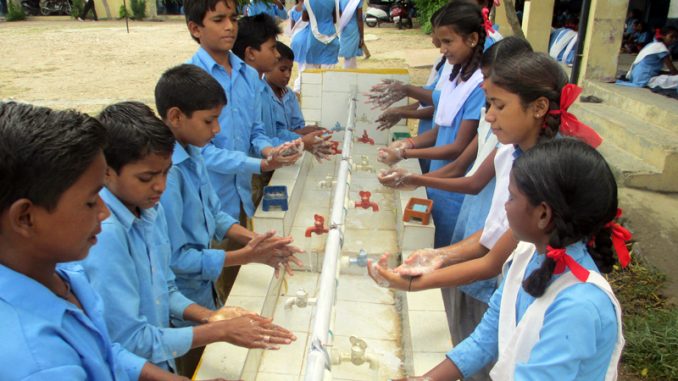
In News
A monitoring report released recently by UN organizations has found that India made good progress in sanitation in the form of a reduction in open defecation and greater access to drinking water.
Ending Open Defecation
- The report by the Joint Monitoring Programme of the UNICEF and WHO had found that since the start of the millennium India accounted for two-thirds of the 650 million people who stopped practicing open defecation. That is between 2000 and 2017.
- According to the report, India single-handedly dragged the world to achieve the Sustainable Development Goal of ending open defecation. The South Asia region which includes India accounted for three-fourths of the population that ended open defecation between 2000 and 2017.
- When 2.1 billion people gained access to basic sanitation across the world, 486 million of them are from India.
Access to Drinking Water
- The percentage of people with access to a drinking water source in less than 30 minutes has increased from 73% in 2000 to 93% in 2017.
- However, the report found that the percentage of people with access to piped water remained stagnant at 44% in the seventeen year period. It also found that there are inequalities in access between rural and urban areas.
- 32% of people in rural areas have access to piped water whereas 68% in urban areas access piped water.
Sanitation in SDG
- Goal 6 of the Sustainable Development Goals (SDG) of the United Nations is Clean Water and Sanitation. The aim of the goal is to provide safe and clean drinking water to all by 2030. This should be achieved by investing in infrastructure, providing adequate sanitation facilities and encouraging hygiene among people.
- At 2015 levels, the UN had projected that one in four will suffer from water shortages by 2050.
- Water is becoming scarce due to the growing population and erratic weather systems across the world.
- Also, 80% of sewage water goes untreated and is lost to the sea.
- SDG 6 is thus an important goal for the progress of humanity.
Swachh Bharat Mission
- The reason behind India’s success is the Swachh Bharat Mission.
- The mission led to the construction of a large number of toilets thereby ending open defecation significantly.
- The other components of the mission include solid and liquid waste management and access to piped water.
- India is lagging in liquid waste management where only 30% of the liquid waste in the country is sent for treatment while the global average is at 80%.
- And disposing of solid waste is still to be streamlined in India.
Continuing Progress
- The newly formed government has made solid and liquid waste management the focus of the Swachh Bharat phase 2.
- As per the government, there are four components to the success of Swachh Bharat. They are political leadership, public financing, people’s participation, and partnerships.
- Also, the government is drafting a new programme called ‘Nal se Jal’ for providing drinking water to all in the country.
Human Right
- Clean drinking water and access to a hygienic toilet is a basic human right.
- Unmanaged fecal waste is a burden especially on the poor and marginalized groups that suffer disproportionately.
- The monitoring report clearly shows that the efforts of India has borne fruit and the government must continue the efforts to make India 100% open defecation free, provide clean drinking water to all and save precious water resources in the form of sewage treatment.
Classic IAS Academy

Leave a Reply
You must be logged in to post a comment.